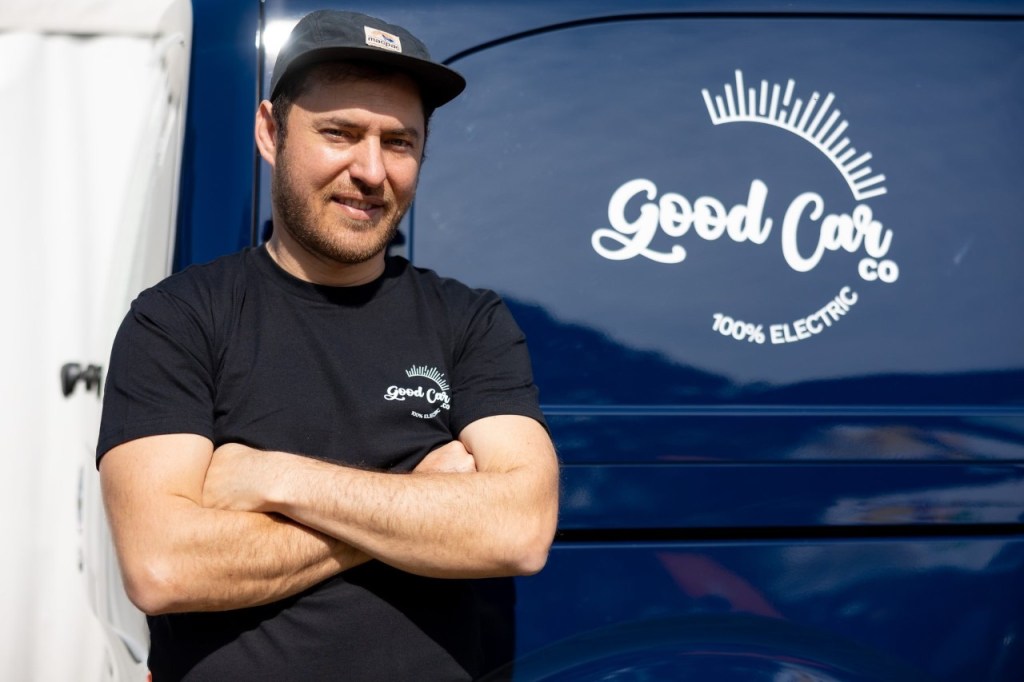Big tech names have invested in The Good Car Company to boost the availability of EVs in Australia.
Key Takeaways
- Tech billionaires Mike Cannon-Brookes and Cameron Adams have invested
- Transport accounts for 18% of Australia’s emissions
- Australia is falling behind in EV sales compared with the UK, Europe and New Zealand

Australia has made a significant step towards making electric vehicles (EVs) more accessible and affordable after a $10 million investment by Mike Cannon-Brookes philanthropic venture, Boundless, in a little-known Tasmanian disruptor, The Good Car Company.
The investment is a timely one: just last week the federal government opened the consultation period into Australia’s National Electric Vehicle Strategy (submissions are open to the public until October 31).
While the investment is a drop in the ocean when it comes to the multi-million-dollar Australian automotive industry, it’s a start.
“The Good Car Company’s commitment towards action and changing the current state of play one car at a time is exactly what Australia needs right now.”
– Cameron Adams, Canva co-founder
Currently, automotive companies offer brand new electric vehicles at prices upwards of $80,000. The price of a used EV from The Good Car Company, by comparison, starts at $20,000.
The Good Car Company co-founder and director, Anthony Brose van Gronou says the investment has allowed his company to add 2,000 more used EVs – mainly sourced from the UK and Japan – to the largely under-sourced Australian EV market.
“Our mission is quite simple: it is to enable everyone to access cleaner, more affordable transport and energy. By doing that carbon emissions are reduced by thousands of tonnes – it’s a win-win,” he said.
Brose van Gronou says that while Australian sales of EVs more than doubled from 2% to 4.4% of total vehicle sales last month, there’s still a way to go compared to EV sales in countries such as the UK, Europe and New Zealand. He says EV purchases must account for a minimum of 10% of all car sales by 2024, in order for Australia to keep up with the rest of the world.
“To achieve critical growth in the EV market, the Australian government’s proposed fuel efficiency standards will be absolutely critical,” he says. “In New Zealand, fuel efficiency standards saw the country’s EV adoption rise from 3% to 10% in just over a year. It works.”
Boundless chief executive officer Eytan Lenko says the The Good Car Company was “a perfect fit” for its vision to see Australia become a renewable superpower by 2030.
“With transport accounting for 18% of Australia’s emissions, we knew our first priority had to be bridging the growing gap between demand for EVs among Australians and the supply available within an attainable price point.”
Cannon-Brookes was not the only tech entrepreneur to take notice of The Good Car Company. Canva co-founder, Cameron Adams and his wife Lisa Miller, have also invested $1 million in the business as it continues to grow.
“It was incredibly exciting to meet a trio of entrepreneurs tackling climate change and electrification in our own backyard, and we have been enthusiastic supporters ever since,” Adams says. “The Good Car Company’s commitment towards action and changing the current state of play one car at a time is exactly what Australia needs right now.”